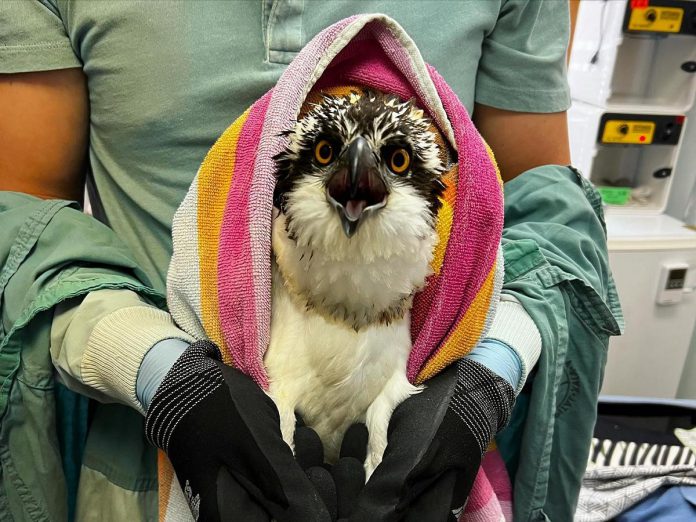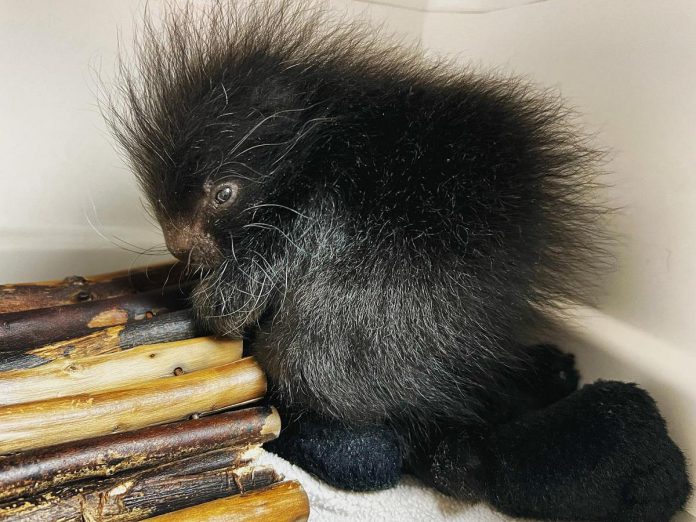
Kawartha Wildlife Centre, a rehabilitation centre for orphaned, sick, and injured wildlife for Peterborough and the Kawarthas, served the community for over six years before permanently closing in June.
Previously operating in Omemee, Kawartha Wildlife Centre opened its Ennismore location in 2019. It is estimated that they cared for over 3,000 patients, inlcuding injured birds and orphaned mammals, since operations began at the Robinson Road location.
On top of their busy wildlife rehabilitation efforts, the organization worked to offer community education opportunities including Wildlife Hero Day Camp and Wildlife Wednesdays at the Peterborough Public Library. Hands-on learning with real fur pelts and skulls, birds nests, owl pellets, and more allowed learners to become uniquely acquainted with local wildlife and encouraged stewardship and environmental action in community members.
Caring for wildlife is incredibly costly, and wildlife rehabilitators are not entitled to any government funding as is stipulated by the Fish and Wildlife Conservation Act. As a result, Kawartha Wildlife Centre relied entirely upon donations to cover expenses like veterinary care, food, and the rehabilitation facilities.
Despite the fundraiser that began in November 2023 via CanadaHelps, Kawartha Wildlife Centre was unable to reach their fundraising goal of $200,000, which would have allowed them to reopen with a paid staff team.
The fundraising campaign brought in just a quarter of that goal. The small pool of funding raised will be allocated to other wildlife rehabilitation centres in the surrounding area, ensuring help and resources for the likely influx of patients that result from Kawartha Wildlife Centre’s closure.

In a statement on behalf of Kawartha Wildlife Centre’s Board of Directors, Thom Luloff said, “While we are facing a period of strategic planning and re-evaluation in the coming months, please know that our journey is not over. We are committed to working towards rebuilding a rehabilitation centre in the future with sustainable funding sources. In the meantime, we will continue to focus on our education and community programs.”
Those programs currently include Wildlife Wednesdays and Junior Biologist at the Peterborough Public Library.
Until a wildlife centre is re-opened in this region, it’s important to understand what individuals can do to help wildlife. If you believe you may have found a sick, orphaned, or injured animal, there are a few signs to look for that are usually quite specific to the species and situation. Animals that require human intervention often have visible external wounds, a deceased parent nearby, or may exhibit strained movement or uncharacteristic behaviours.
Citizens are urged to use the Ontario wildlife rehabilitators map (below) for assistance in finding facilities that can accept wildlife in need. The wildlife custodian you contact will give specific instructions and directions on next steps.
Please note that there are several types of wildlife rehabilitation centres. Some locations cannot accept certain animals due to potential diseases, including rabies vector species including bats, raccoons, foxes, and skunks, as well as birds that could carry Avian flu such as turkeys, geese, and quails.
Certain centres also cannot cater to larger animals, predatory carnivores, or other specific species for a variety of reasons including permits, vaccines, laws, and spatial capacity.
MAP: Ontario Wildlife Rehabilitators
Open a larger version of this map in a new window
If you find sick, orphaned, or injured wildlife, it is likely that wildlife custodian would recommend that you take the following steps:
- Prepare a container to hold the creature in your care. A plastic tub, laundry basket or cardboard box can be suitable provided there is adequate security and ventilation.
- Do not offer the animal anything to eat or drink.
- Always wear gloves to protect yourself and the animal.
- Cover the animal’s head with a towel or sheet if you can safely do so. This will help calm the animal and make handling them easier.
- Gently place the animal in the prepared container. Scoop them up with the blanket or use a shovel, cardboard or plastic lid.
- Secure the container to ensure the animal cannot escape. Make sure they can breathe. Remove the blanket or towel to prevent suffocation or entanglement.
- Record your exact location GPS coordinates or closest intersection, as animals must be released back to the rescue site,
- Wash your hands thoroughly after handling wildlife.
- Contact your nearest wildlife centre for next steps or further instructions,
- Feel good about helping Ontario’s wildlife!
As it is illegal to keep any Ontario wildlife in your possession, it is in the best interest of everyone — the animal, the wildlife rehabilitator, and yourself — to surrender the care of animals in need to the certified wildlife custodians with all the required training, vaccines, equipment, and certifications.
Kawartha Wildlife Centre recommends the three nearest rehabilitation centres to residents of Peterborough and the Kawarthas both to support by making a donation, and also to call upon if sick, orphaned or injured wildlife are found in the community.
The nearest centres are Shades of Hope in Pefferlaw (705-437-4654), Soper Creek in Bowmanville (905-442-1648), and Woodlands Wildlife Sanctuary in Minden (705-286-1133).


























